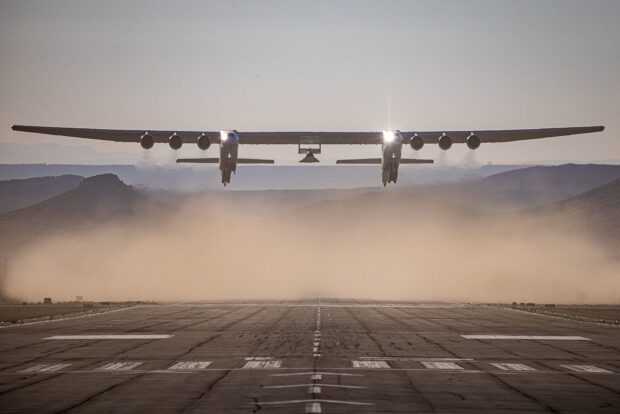
The US-based firm Stratolaunch has announced a new captive carry test flight of its Talon-A hypersonic vehicle, via its impressive Roc launch platform, in preparation for a first powered flight. The long-term aim is to be able to launch small rockets by reaching a height and speed that favor their flight.
The Roc launch platform is a giant aircraft — the world’s largest, with a 117-meter wingspan — featuring six engines and a double fuselage, developed as a carrier aircraft for an airborne capsule. Stratolaunch’s aim is to develop a hypersonic flight business, whether for space conquest or even, one day, space tourism.
READ: ‘Flying cars’ in PH coming soon
In all, this latest test flight lasted almost 4.5 hours, and took place without incident. Its operating principle is simple. Once at the right altitude, the rocket should ignite its engine and head off into space to place satellites into orbit, for example. This method is more flexible than the traditional vertical lift-off, as the operation can be carried out from any major runway.
The Talon-A hypersonic test aircraft, also developed by Stratolaunch and carried by the Roc launch platform, will be capable of reaching Mach 6. For future missions, it has been designed to be reusable, since it must be able to return to Earth autonomously, to any given point.
Other supersonic flight projects are currently under study, such as Swiss company Destinus, which is working on a project for hydrogen-powered aircraft capable of flying at over 6,000 km/h. The idea is that, by 2035, such aircraft should be able to fly from Frankfurt to Sydney in just four hours, and with zero CO2 emissions.

